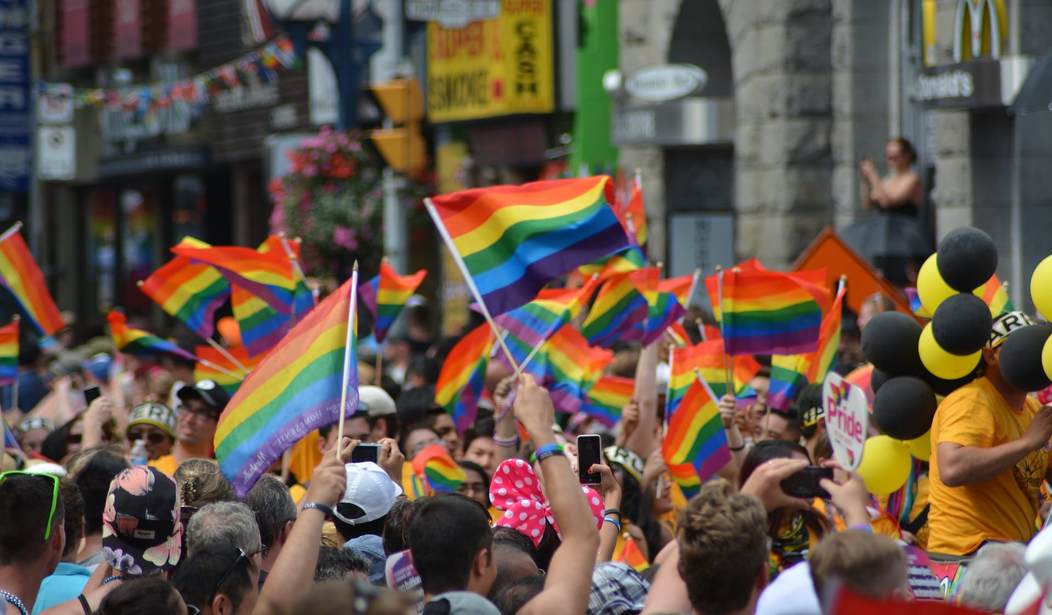Star Wars: The Rise of Skywalker releases this weekend, and it will feature an LGBT moment like the one from Beauty and the Beast (2017): this time a lesbian kiss in the background. Meanwhile, Republicans in Congress have supported a compromise bill outlawing discrimination against LGBT people called “Fairness for All,” and the Church of Jesus Christ of Latter-day Saints has supported a Utah ban on “conversion therapy” for minors.
Each of these disparate events represents the same strategy: people think they can compromise with the LGBT activist movement.
Filmmakers know that the majority of their audiences are straight, so they don’t want pervasive LGBT themes. As a compromise, they throw in a gay character or two — in the case of Rise of Skywalker apparently just a couple kissing in the background — in an attempt to appease the LGBT activists, and keep their storytelling otherwise intact.
On December 6, Republicans in Congress introduced H.R. 5331, the “Fairness for All” Act. Two massive evangelical Christian organizations — the Council for Christian Colleges and Universities (CCCU) and the National Association of Evangelicals (NAE) — previously adopted “Fairness for All” as a compromise to outlaw discrimination against LGBT people while also protecting religious freedom.
In Utah, the Church of Jesus Christ of Latter-day Saints supported the state’s new ban on so-called “conversion therapy” for minors. This seems linked to the Mormon Church’s support for Fairness for All.
Yet in each case, the LGBT activist mob has rejected these compromises, demanding full capitulation.
As for Star Wars, Entertainment Weekly had a brief recap of the LGBT backlash:
Star Wars: Rise of Skywalker follows Avengers: Endgame by gesturing vaguely at LGBTQ community with split-second shot of women kissing, claims film has queer representation,” wrote one. “ Rise of Skywalker – two ladies kiss in the background of some scene. Avengers: Endgame – random guy in grief counseling says he went on date with a dude Beauty & the Beast. LeFou dances with a guy for like 3 seconds sO pRoGrEsSiVe!,” tweeted another. “Being a lifelong Star Wars fan, any representation is an exciting prospect. It doesn’t seem like they are committing to it, though. Disney has to make a decision. These 2-second cameos are enough to anger conservatives, but they aren’t enough for us…” wrote a third.
When it comes to Fairness for All, the Human Rights Campaign, GLAAD, and Lambda Legal published a joint statement expressing “strong opposition” to the bill. “This legislation licenses discrimination while eroding the rights of people of faith,” the statement reads. “It is wrong, and we strongly oppose it.”
Christian baker Jack Phillips should serve as a cautionary tale. While Americans rightly oppose any business refusing to serve LGBT people, Phillips gladly serves them through his business, but he refused to bake a custom cake to celebrate a same-sex wedding. After a years-long legal battle, the Supreme Court upheld his religious liberty. Then a transgender activist brought him to court again after he refused to bake a custom cake celebrating transgender identity.
When Christians refuse to celebrate LGBT identities, they are condemned as “wicked,” even if they treat LGBT people with nothing but respect. Bakers like Phillips would not be included in the narrow religious freedom protections in Fairness for All.
Even the “conversion therapy” ban falls far short of LGBT activist demands. Activists have said they would support it — for now. In reporting the Mormon Church’s support for the policy, Time quoted GLAAD’s definition of conversion therapy: “any attempt to change a person’s sexual orientation, gender identity, or gender expression.”
As Southern Baptist Theological Seminary President Al Mohler noted, that definition is very different from the Utah policy’s definition.
The Utah policy, derived from House Bill 399, defines conversion therapy as “a practice or treatment that: claims that therapy will result in a complete and permanent reversal in the patient or client’s sexual orientation; asserts that a complete and permanent change in the patient or client’s sexual orientation is necessary; subjects a patient or client to physical discomfort through aversive treatment that causes nausea, vomiting, or other unpleasant physical sensations; or provides electric shock or other electrical therapy, including electroconvulsive.”
The Utah policy only deals with sexual orientation, and it does not ban mainstream therapies that address underlying psychological issues that may alter sexual orientation.
While sexual orientation change therapy has an ugly past, bans on “sexual orientation change efforts” have proven extremely broad and have undermined mainstream, patient-driven talk therapy efforts to deal with psychological issues sometimes related to unwanted sexual attractions.
A California ban on such efforts drew wide opposition because it would effectively ban the Bible and various Christian books offering hope to people struggling with unwanted same-sex attractions. The bill’s sponsor eventually withdrew it, but other versions of this policy have emerged in Texas, of all places.
These bans only outlaw psychotherapy in one direction, however. If a patient identifies as gay but struggles with opposite-sex attraction, therapy to confirm homosexuality would not be considered illegal. If a patient identifies as straight but struggles with same-sex attraction, however, therapy to confirm a heterosexual identity would be considered “conversion therapy.”
The situation becomes even more perverse when applied to transgender identity. Many formerly transgender people have traced their cross-sex identity to the psychological damage they suffered due to child abuse. Yet “conversion therapy” bans only outlaw psychological efforts against transgender identity, not for it.
Many have deeply regretted the irreversible effects of hormone injections and surgery to force their healthy male or female bodies to appear feminine or masculine. “I am a real, live 22-year-old woman, with a scarred chest and a broken voice, and five o’clock shadow because I couldn’t face the idea of growing up to be a woman, that’s my reality,” admitted Cari Stella in a deeply personal YouTube video.
“Conversion therapy” bans would prevent women like her from receiving counseling confirming them in their female sex, but they would not outlaw therapy pushing her in the direction of irreversible sterilizing treatments.
State lawmakers across the country are considering bills to protect minors from dangerous transgender “treatments,” a cause that picked up steam after the horrifying case of 6-year-old boy James Younger in Texas. Children who suffer from gender confusion need counseling, not hormones and surgery.
Perhaps no case best illustrates the folly of caving to the LGBT mob more than Harry Potter author J.K. Rowling. Rowling has celebrated homosexuality, even declaring that Albus Dumbledore was secretly gay. Yet she has repeatedly gotten into trouble for disagreeing with transgender identity. In fact, she recently spoke out after a tax expert lost her job because she upheld biological sex over transgenderism.
The same LGBT activists who celebrated the Dumbledore claims have excoriated Rowling for this heresy.
While a posthumously gay Dumbledore and an LGBT moment in Star Wars may only do slight damage to those stories, caving to the LGBT mob on religious freedom and psychotherapy can have lasting policy impacts, damaging lives and undermining Americans’ ability to live out their convictions. In all these cases, the attempt at compromise is never enough.
Follow Tyler O’Neil, the author of this article, on Twitter at @Tyler2ONeil.









